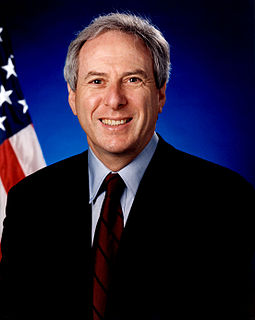A Quote by Cornelia Funke
Because by now Elinor had understood this, too: A longing for books was nothing compared with what you could feel for human beings. The books told you about that feeling. The books spoke of love, and it was wonderful to listen to them, but they were no substitute for love itself. They couldn't kiss her like Meggie, they couldn't hug her like Resa, they couldn't laugh like Mortimer. Poor books, poor Elinor.
Related Quotes
The books in Mo and Meggie's house were stacked under tables, on chairs, in the corners of the rooms. There where books in the kitchen and books in the lavatory. Books on the TV set and in the closet, small piles of books, tall piles of books, books thick and thin, books old and new. They welcomed Meggie down to breakfast with invitingly opened pages; they kept boredom at bay when the weather was bad. And sometimes you fall over them.
One's life is more formed, I sometimes think, by books than by human beings: it is out of books one learns about love and pain at second hand. Even if we have the happy chance to fall in love, it is because we have been conditioned by what we have read, and if I had never known love at all, perhaps it was because my father's library had not contained the right books.
Well, this is a story about books." About books?" About accursed books, about a man who wrote them, about a character who broke out of the pages of anovel so that he could burn it, about a betrayal and a lost friendship. It's a story of love, of hatred, and of the dreams that live in the shadow of the wind." You talk like the jacket blurb of a Victorian novel, Daniel." That's probably because I work in a bookshop and I've seen too many. But this is a true story.
Books can be passed around. They can be shared. A lot of people like seeing them in their houses. They are memories. People who don't understand books don't understand this. They learn from TV shows about organizing that you should get rid of the books that you aren't reading, but everyone who loves books believes the opposite. People who love books keep them around, like photos, to remind them of a great experience and so they can revisit and say, "Wow, this is a really great book."
A man's bookcase will tell you everything you'll ever need to know about him," my father had told me more than once. "A businessman has business books and a dream has novels and books of poetry. Most women like reading about love, and a true revolutionary will have books about the minutiae of overthrowing the oppressor. A person with no books is inconsequential in a modern setting, but a peasant that reads is a prince in waiting.
Having a clear faith, based on the creed of the church is often labeled today as fundamentalism. Whereas relativism, which is letting oneself be tossed and Of all the ways of acquiring books, writing them oneself is regarded as the most praiseworthy method. Writers are really people who write books not because they are poor, but because they are dissatisfied with the books which they could buy but do not like.
Electronic books are ideal for people who value the information contained in them, or who have vision problems, or who like to read on the subway, or who do not want other people to see how they are amusing themselves, or who have storage and clutter issues, but they are useless for people who are engaged in an intense, lifelong love affair with books. Books that we can touch; books that we can smell; books that we can depend on.
When I first learned about Abrams and saw the types of books they were making, I knew I wanted my books to be published by them. Abrams books are special-when you hold one in your hands, you have the feeling that this book needed to be made. I once heard an artist say that books are fetish objects-I think Abrams gets that, because their books demand to be treasured. So who better to give comics art its proper due? I feel privileged to have found a home with Abrams.
The difficulty will be to keep her from learning too fast and too much. She is always sitting with her little nose burrowing into books. She doesn't read them, Miss Minchin; she gobbles them up as if she were a little wolf instead of a little girl. She is always starving for new books to gobble, and she wants grown-up books--great, big, fat ones--French and German as well as English--history and biography and poets, and all sorts of things. Drag her away from her books when she reads too much.
I literally feel like books saved my life. I found these people. Me reading Camus and Kafka, all of the tortured teenager stuff of someone who's falling in love with books. These people, these writers had the questions. They may not have had the answers, but they're not afraid to look at the questions head on. It was just life-changing for me. Yeah, books, honestly, I can't even tell you. I feel saved by books; I feel like they let me be who I was and find the world I wanted to be in.
I went off and read the books after the audition and I read all four books in one sitting - you know - didn't wash, didn't eat, drove around with them on the steering wheel like a lunatic. I suddenly understood why my friends, who I'd thought where slightly backward, had been so addicted to these children's books. They're like crack.
What is a great love of books? It is something like a personal introduction to the great and good men of all past times. Books, it is true, are silent as you see them on their shelves; but, silent as they are, when I enter a library I feel as if almost the dead were present, and I know if I put questions to these books they will answer me with all the faithfulness and fulness which has been left in them by the great men who have left the books with us.
It had been startling and disappointing to me to find out that story books had been written by people, that books were not natural wonders, coming up of themselves like grass. Yet regardless of where they come from, I cannot remember a time when I was not in love with them - with the books themselves, cover and binding and the paper they were printed on, with their smell and their weight and with their possession in my arms, captured and carried off to myself. Still illiterate, I was ready for them, committed to all the reading I could give them.
































